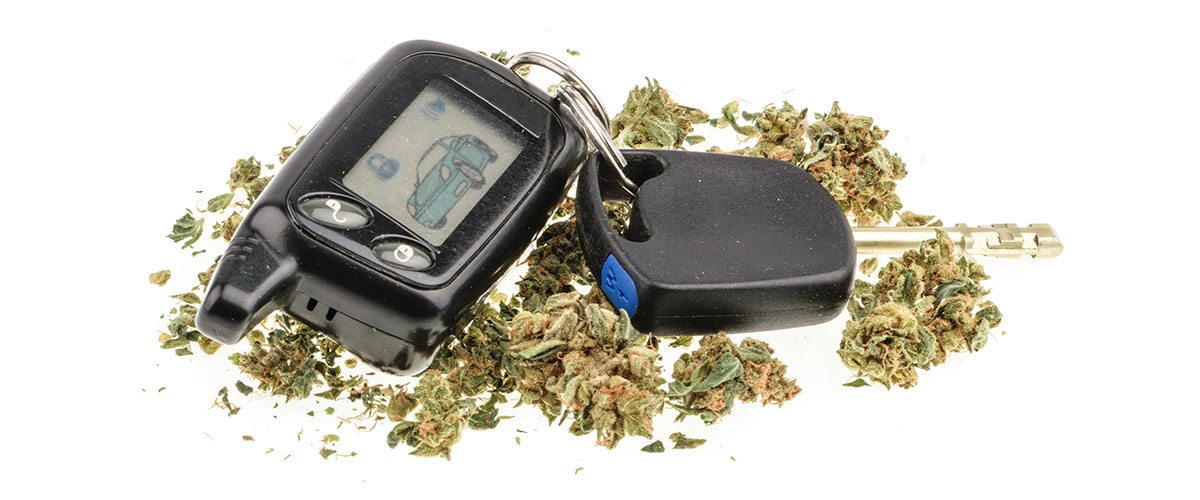[vc_row][vc_column][vc_column_text]
Data out of Colorado shows that the number of arrests for driving under the influence of marijuana is declining.
Colorado saw 33 percent fewer marijuana DUIs in the first quarter of 2017 compared to the same period last year, according to new data from the Colorado Department of Transportation (CDOT). There were 155 drivers cited for “marijuana-use-only” impairment from January to March 2017, down from the 232 people cited from January to March 2016.
Opponents to marijuana legalization often raise concerns of the potential impact on impaired driving and on-road accidents, but the Colorado data is the latest evidence to indicate these worries are unwarranted.
Three years ago, CDOT launched a “Drive High, Get a DUI” campaign designed to raise awareness that driving while intoxicated is illegal. Marijuana-related DUIs have continued to drop since that time. The State Patrol arrested fewer people on allegations of driving under the influence of marijuana in 2016 compared to 2015. The latest data could indicate that Colorado’s cannabis-using residents are continuing to take precautions to ensure they’re driving safely.
“Are the citations going down? Yeah, but is the number of people using marijuana and then driving going down? I don’t know how to quantify that,” said Nate Reid, a Colorado State Patrol spokesman. “This is just after the officer stop. This isn’t post-conviction or after they may have been arrested.”
Despite the significant drops in marijuana DUI citations, Colorado officials are concerned that too many people still don’t consider it dangerous to drive while under the influence of marijuana. CDOT spokesman Sam Cole cites findings in a CDOT survey, though it’s unclear when it was conducted, that found 55 percent of cannabis users believe it is safe to drive while under the influence.
“We’re still troubled by the fact that marijuana users are still telling us they routinely drive high,” said Cole. “We’re pleased with the awareness, but we’re not so pleased with the behaviors that are actually happening.”
“There’s a lot of troubling information we’ve collected and many marijuana users indicate that they drive high and they don’t think it’s a danger,” Cole added.[/vc_column_text][/vc_column][/vc_row][vc_row][vc_column][vc_single_image image=”17320″ img_size=”1200×250″ onclick=”custom_link” img_link_target=”_blank” link=”https://www.medicalmarijuanainc.com/majority-americans-believe-not-worth-cost-enforce-marijuana-prohibition-poll-finds/”][/vc_column][/vc_row][vc_row][vc_column][vc_column_text]Cannabis intoxication can mildly impair psychomotor skills and reduce reaction time in a dose-related fashion, but evidence suggests that “marijuana smokers tend to compensate effectively while driving” and that this impairment doesn’t play a significant role in on-road traffic accidents. In Oregon, a state that legalized recreational marijuana in 2014, marijuana-related traffic fatalities have not increased since retail sales began.
Reid added that despite legalization being relatively new in Colorado, state troopers are experienced with detecting impaired drivers.
“Troopers have been trained in advance for detecting alcohol and marijuana and other prescription drugs,” he said.
Despite having a patrol force alert to issues of driving under the influence, citations for marijuana intoxication are declining. The latest data out of Colorado also shows a decrease in citations for combined alcohol and marijuana, with 50 in the first quarter of 2017 compared to the 69 in the first three months of 2016.
Seven U.S. states outside of Colorado have passed laws allowing for recreational marijuana use by adults. A recent market research report suggests legalizing could expand to all 50 states by 2021.
Keep up with the legal cannabis industry by regularly visiting our news feed.[/vc_column_text][/vc_column][/vc_row]






